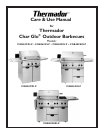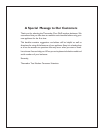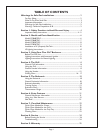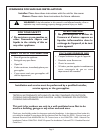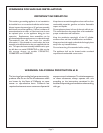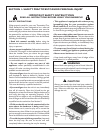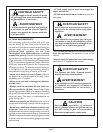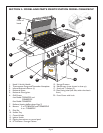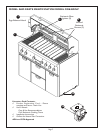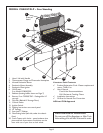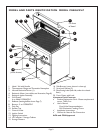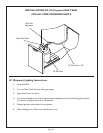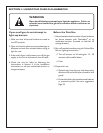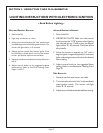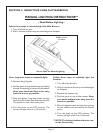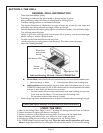Special offers from our partners!

Find Replacement BBQ Parts for 20,308 Models. Repair your BBQ today.
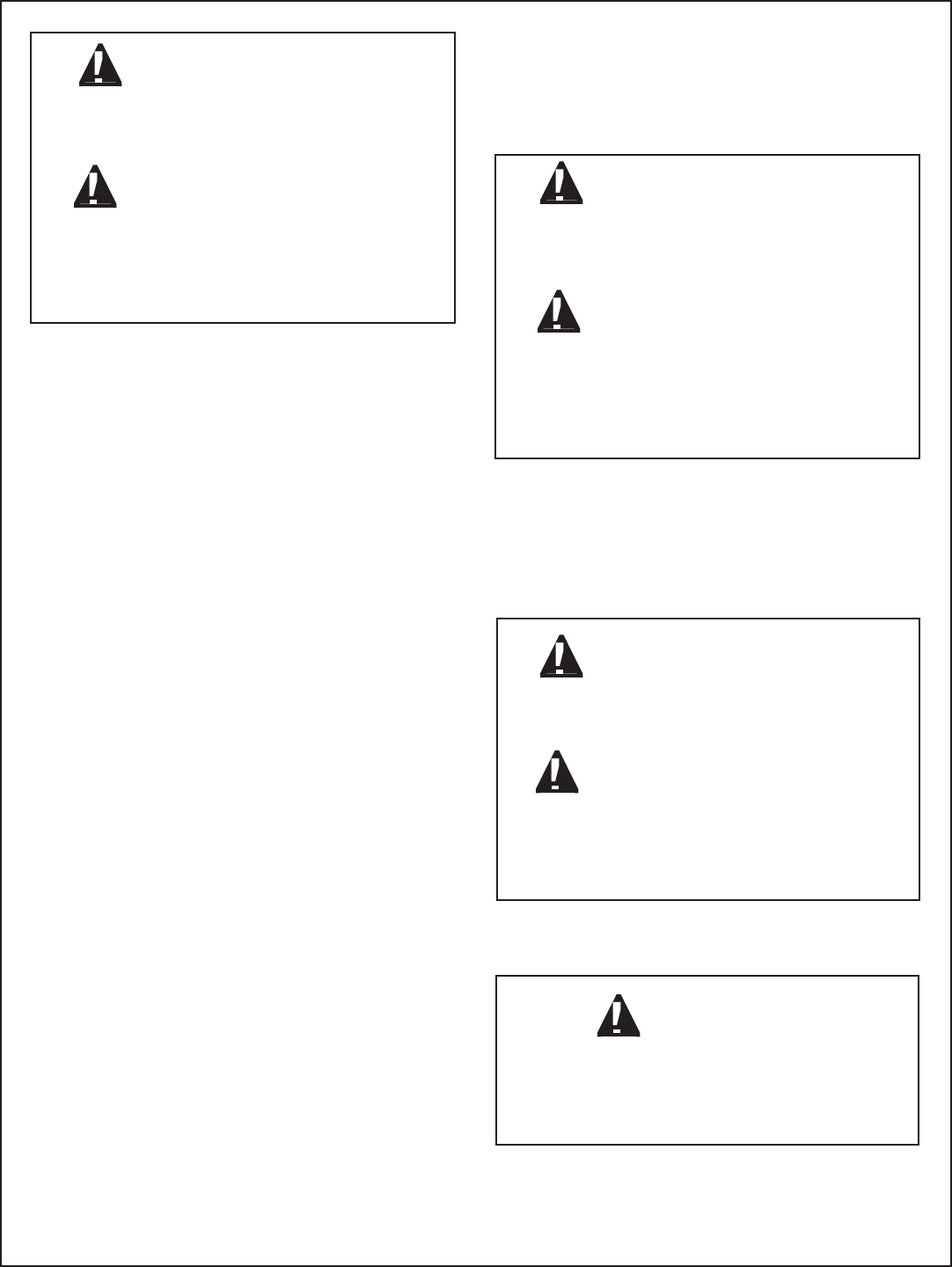
FOR YOUR SAFETY
For Outdoor Use Only. If stored indoors,
detach and leave tank outdoors.
AVERTISSEMENT
Pour utlilisation a la l’extérieur seulement.
Si l’appareil est entreposé à l’intérieur,
enlever les bouteilles et les laisser a
l’extérieur.
FOR YOUR SAFETY
An LP tank not connected for use shall not
be stored in the vicinity of this or any other
appliance.
AVERTISSEMENT
Une bouteille de propane qui n’est pas
raccordée en vue de son utilisation, ne doit
pas etre entreposée dans le voisinage de cet
appareil ou de tout autre appareil.
• The LP tank must be disconnected and removed
from the appliance if the appliance is to be stored
indoors.
• Always check for leaks after every tank change.
See Section 5 of Installation Instructions.
FOR YOUR SAFETY
• The gas supply must be turned off at the
LP-gas supply tank when this outdoor cook-
ing gas appliance is not in use.
AVERTISSEMENT
• L’alimentation du gaz doit étre fennée a
la bouteille de gaz de pétrole liquéfié,
lorsque cet appareil de cuisson extérieur
n’ est pas utilisé.
CAUTION
Simultaneous operation of rotisserie
burners, smoker burner and grill burners on
the HI setting is not recommended.
Excessive temperatures could result.
Page 5
LP TANK REQUIREMENTS
All free-standing units are provided with an LP tank
from the factory. All other units can be converted for
use with an LP tank which can be purchased locally at a
barbecue supply store or other retail outlet. The
maximum tank capacity for use with
Thermador® Char Glo® barbecues is twenty
pounds (five gallons). The tank must be constructed
and marked in accordance with the specifications for
LP-gas tanks of the U.S. Department of Transportation
(DOT) or the National Standard of Canada, CAN/CSA-
B339, tank, Spheres and Tubes for the Transportation
of Dangerous Goods. To minimize the potential for fire
or an explosion, the following precautions should be
observed when using, filling or storing an LP tank:
• Never use a dented or rusty LP tank. If there is
any question as to the soundness of the tank, have it
checked by your LP supplier.
• Never use a tank with a damaged or defective
shut off valve.
• Always close the tank shut off valve after use.
• Do not overfill the LP tank. Never fill the LP tank
beyond eighty percent (80%) of its capacity. Overfilling
will cause the pressure relief valve on the tank to vent
excess gas vapor. This vapor is combustible and can
ignite, causing a fire.
• When transporting an LP tank, insure it is in an
upright position and away from any sources of high heat.
• Do not store additional LP tanks inside the cart
of the unit. Tanks must be stored outdoors in a well-
ventilated area out of direct sunlight and/or sources of
high heat, and out of the reach of children. Disconnected
cylinders must have threaded valve plugs tightly installed
and must not be stored in a building, garage or any other
enclosed area.
• LP tank supply system must be arranged for
vapor withdrawal.
• LP tank used must include a collar to protect the
tank valve.



